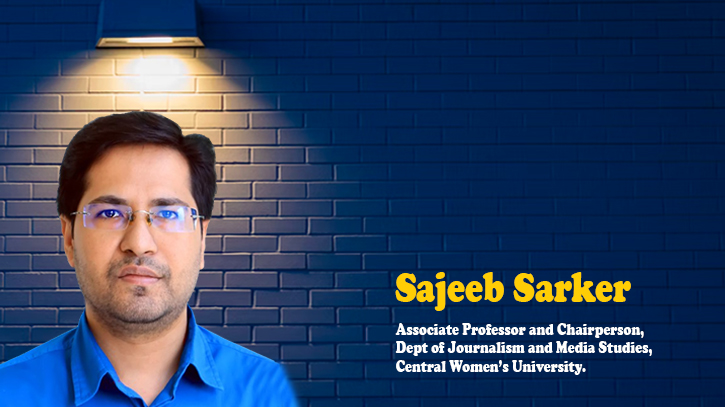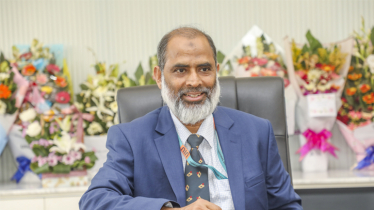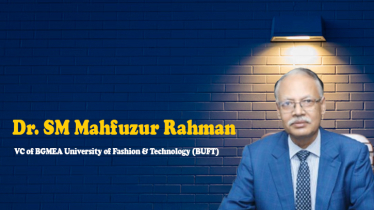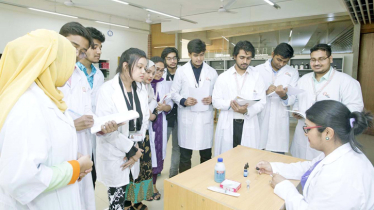
Photo : Messenger
Mahatma Gandhi outlined three significant roles of the media while saying: “One of the objects of a newspaper is to understand popular feeling and to give expression to it; another is to arouse among the people certain desirable sentiments; and the third is fearlessly to expose popular defects.” (Gandhi: An Autobiography)
Media plays a number of roles in a society, but three specific and particularly substantial roles are widely considered key to promoting good governance: playing watchdog role, providing civic forum, and agenda-setting. Gandhi’s aforesaid expression wisely reflects upon this very nature of the press. But before going deep into the governance issue, let us dive into what Gandhi felt about and did in journalism first.
Besides being a lawyer, a philosopher and a national leader, Gandhi was also an apt journalist. He was involved with at least six newsletters and journals. He also served as the editor of at least two well-regarded papers among those six.
What Gandhi considered to be the role of newspapers is manifold. He highly valued ethics and morality as core principles of journalism. So, he envisioned a service-oriented press free from monetary and other such obligations. To Gandhi, journalism was not a means to earn his livelihood; he rather believed that the sole aim of journalism should be service: to the people and to the country. He always advocated that journalists should use the matchless power of the press as a weapon for social change rather than considering it a means of earning their livelihood. It bears enough worth when he says: “In my humble opinion, it is wrong to use a newspaper as a means of earning a living. There are certain spheres of work which are of such consequence and have such bearing on public welfare that to undertake them for earning one’s livelihood will defeat the primary aim behind them.”
We also see that Gandhi embraced journalism as a ‘non-violent weapon’ for his socio-political movements; a weapon he only used to change the status-quo of his time. Gandhi launched his historical Satyagraha against the Rowlatt Act and the massacre in Jallianwala Bagh. While staying in South Africa, he learnt the importance of the press and the power of public opinion in politics. And subsequently he had taught himself how to use ‘written words’ most effectively. Gandhi himself labelled Indian Opinion as the most useful weapon in his struggle in South Africa. As he wrote in this regard, “I have taken up journalism not for its sake but merely as an aid to what I have conceived to be my mission in life. My mission is to teach by example and present under severe restraint the use of the matchless weapon of satyagraha which is a direct corollary of nonviolence.” (Young India, July 2, 1925)
Gandhi also acknowledged the significance of newspapers in educating the common people. According to his core belief, newspapers are meant to educate the people. Newspapers make people familiar with contemporary history and teach the society about its tradition, heritage and contemporary values. Media can teach people ethics, morals, and tolerance. And this, according to him, is a great responsibility.
Gandhi considered three things very significant in journalism: editorial independence, adherence to truth and self-restraint. He realized that publishing advertisements to gain monetary support for running a newspaper actually reduces the power and true potential of journalism. He understood and warned others about the perils of becoming heavily dependent on the ‘consumer market’ i.e. the capitalist enterprises. The press cannot take money from an entity and also write against it at the same time. As he wrote, “It is now an established practice with newspapers to depend for revenues mainly on advertisements rather than on subscriptions. The result has been deplorable. The very newspaper which writes against the evil of drink publishes advertisements in praise of drinks. In the same issue, we read of the harmful effects of tobacco as also from where to buy it.”
So, what we are experiencing today, Gandhi realized it decades ago. He knew it well that journalism cannot be a social service under the growing influence of market forces on the media. It is one of the reasons Gandhi was not in favor of publishing advertisements. Rather, he put his efforts in widening the circulation.
Now, let us take a quick look into the other avenues of this very discussion.
Key issues in governance:
Good governance, or just governance, always requires internal and external support. A nation’s commitment to economic and social reforms is also very important especially when talking about foreign relations. Governance includes both the traditions as well as institutions by which the power or authority is exercised. Media mediates a significant part here by bridging the gap between mutually dependent entities. Governance and the authority to exercise power to serve the people also include other issues like the process by which governments are elected or formed, monitored and replaced; the capacity of the government to effectively formulate and implement sound policies; and the respect of citizens and the state for the institutions that govern economic and social interactions among them.
The Worldwide Governance Indicators (WGI) project suggests six dimensions of governance namely: voice and accountability, political stability and absence of violence/terrorism; government effectiveness, regulatory quality, rule of law, and control of corruption [Daniel Kaufmann and Aart Kraay (2023)].
Major concerns in human development:
On the other hand, the concept of human development comprises of different elements. Some of the major elements, in easy terms, would include the assurance of quality healthcare and education, rational distribution or access to resources including access to work and income opportunities, addressing inequality and gender issues efficiently, continuous effort in reducing poverty and otherwise vulnerability, and ensuring environmental sustainability.
How Gandhi’s philosophy of journalism fits in:
As per the WGI, the first dimension (voice and accountability) is concerned about the extent to which a country’s citizens are able to participate in selecting their government, and measures the existence of freedom of expression, freedom of association, and a free media. A free and fair media system, as envisioned by Gandhi, comes in handy just at this point.
The second dimension (political stability and absence of violence/terrorism) measures perceptions of the likelihood of political instability and/or politically motivated violence, including terrorism. Gandhi’s media aims at educating the people and being a catalyst for social change. By sincerely promoting history, ethics and morality, media can contribute a lot in this regard.
The third dimension (government effectiveness) indicates the perceptions of the quality of public services, the quality of the civil service and the degree of its independence from political pressures, the quality of policy formulation and implementation, and the credibility of the government’s commitment to such policies. When Gandhi advocates in favor of a press free from monetary obligations and dedicated to serve the people and the country, he actually solves all these puzzles. A free, unbiased and service-oriented media system can necessarily play the watchdog role unfailingly and ensure that everything is in the right direction.
The fourth dimension (regulatory quality) talks about the perceptions of the ability of the government to formulate and implement sound policies and regulations that permit and promote private sector development. Media has long been serving as the bridge between the government and the citizens, and between public and private institutions. It is media who creates and provides a civic forum where policies are measured for their efficiency and potential through rigorous dialogues between both the parties. Gandhi’s philosophy on journalism sheds light on the fact that the press must put the people’s interest first and foremost.
The fifth dimension (rule of law) considers the basic requirements of a society free from crime and violence. Again, only an independent and service-oriented media can play its watchdog role to report on the existing law-and-order scenario.
The sixth dimension (control of corruption), again, requires Gandhi’s independent press system that is fit enough to monitor and report whether public power is being exercised for private gain, including both ‘petty and grand forms of corruption’.
To conclude:
Of course, Gandhi was not the first to outline information, education and watchdog functions of the press, and nor did he advocated for media ethics before all others; but, he was an ardent believer in those principles and practiced that himself as a journalist. Gandhi perceived, believed and very strongly advocated for the media to practice ethics and morality in its truest sense, and serve the people as well as the country – which he practiced as a journalist.
Such a media system can address major development challenges of our time and pioneer a peaceful world in its truest sense. For that media must give up putting all its efforts mainly on monetary profit and so-called popularity. Rather, it should focus on teaching the people all the good qualities, and promote democracy and good governance by bridging the gaps between the people and the government. In that way, rule of law will also prevail because the media will actually be helping the legal system to function smoothly.
Only an independent media can help achieve and maintain all these conditions. A truly service-oriented and ethical media that Gandhi advocated for is fit enough to drag all the curves in the graph upward.
Sajeeb Sarker: Associate Professor and Chairperson, Department of Journalism and Media Studies, Central Women’s University. Email: [email protected]
Messenger/Disha








